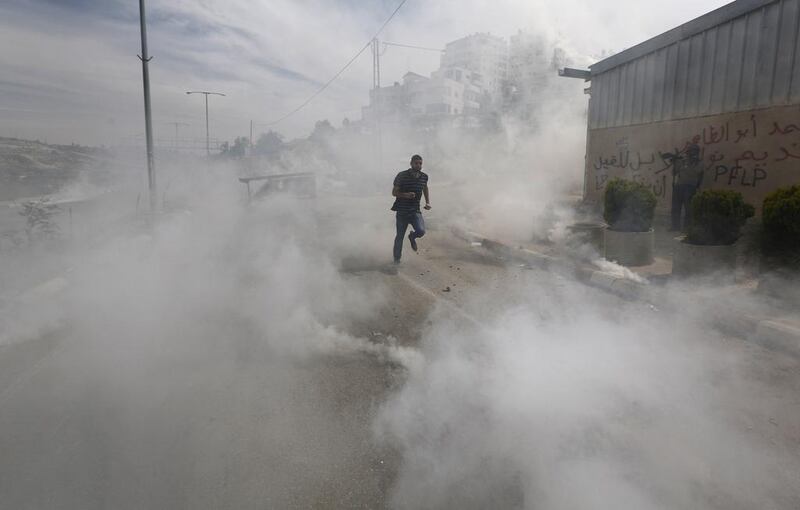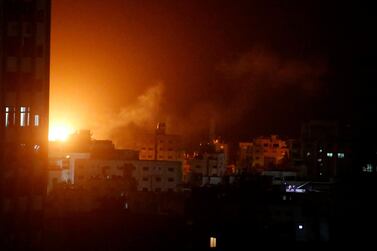Palestinian prisoners held in Israel have called off a hunger strike that lasted a week after some of their demands were met by Israeli authorities, official Palestinian media and prisoner representatives said.
Palestinian groups said hundreds of inmates began refusing food on April 8 after negotiations with prison authorities broke down.
Fears had been raised of a repeat of an 800-person hunger strike in 2017, which drew attention to prisoners' conditions.
A statement from the Palestinian Prisoners' Club non-governmental organisation said an agreement had been reached to end the strike.
The was no immediate reaction from the Israel Prison Service.
Prisoners had a list of the demands and their strike was supported by all major Palestinian factions.
Hamas, which rules Gaza, in particular has objected to new electronic jammers installed in some of the prisons, to block mobile phone reception.
The Prisoners' Club said the Israeli side had agreed to stop the jammers.
Official Palestinian news agency Wafa said it had been agreed that public phones would be installed in the prisons.
The agreement came two days before the Palestinians mark the Palestinian Prisoner Day in which several hundreds more prisoners in various Israeli prisons were supposed to join the strike, Wafa said.
In 2017, 1,578 prisoners participated in the hunger strike overall. That protest lasted for 40 days until the Israelis conceded to one of the main demands of the prisoners. They agreed to two family visits a month for the prisoners instead of the one.
Israel calls the prisoners terrorists and incarcerated murderers so refuses to negotiate with them until such strikes become a major security issue.
Protesters took to the streets in support of the prisoners in 2017 and if there were deaths because of Israel’s lack of willingness to negotiate, unrest could spiral in the occupied West Bank.







